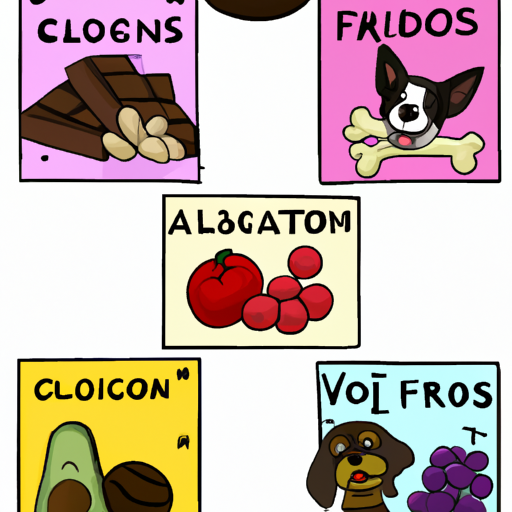Introduction
You love your dog and want to provide them with the best care possible. Part of that care involves knowing what your furry friend can and can’t safely eat. It’s crucial to understand that not all foods suitable for human consumption are safe for dogs.
Foods To Avoid
Let’s explore some foods you should avoid giving to your dogs:
- Chocolate: Contains theobromine, harmful to dogs and can cause heart problems, tremors, seizures, and in severe cases, death.
- Grapes and Raisins: These can cause kidney failure in dogs.
- Onions and Garlic: They both contain thiosulfate which can lead to anemia in dogs.
- Caffeine: It’s dangerous because it stimulates the nervous system and can lead to seizures, abnormal heart rhythm, or death.
The Dangers of Xylitol
Xylitol, a sugar substitute found in many sugar-free products, is toxic to dogs. It can cause a sudden drop in blood sugar, leading to symptoms like weakness, vomiting, loss of coordination, seizures, and even liver failure.
Beware of Certain Nuts
Some nuts, like macadamia nuts, are toxic to dogs and can cause symptoms like vomiting, increased body temperature, inability to walk, and lethargy. Almonds and walnuts can also pose risks as they can block the esophagus or even tear the windpipe if not chewed properly by dogs.
Alcohol and Dogs Don’t Mix
Alcohol, including the alcohol found in products like mouthwash and medication, can cause significant issues for dogs. Symptoms of alcohol poisoning in dogs include difficulty breathing, tremors, abnormal blood acidity, and even death.
Dairy Products
While not immediately toxic, dairy products can cause digestive issues in dogs due to lactose intolerance. Symptoms may include diarrhea, gas, and vomiting.
The Problem with Raw Meat
Feeding raw meat to dogs can pose a risk of foodborne illnesses like Salmonella or E. coli, which can lead to severe digestive issues.
| Food | Risk | Symptoms |
|---|---|---|
| Chocolate | High | Heart problems, tremors |
| Grapes/Raisins | High | Kidney failure |
| Onions/Garlic | Moderate | Anemia |
| Caffeine | High | Seizures, abnormal heart rhythm |
| Xylitol | High | Weakness, vomiting |
| Certain Nuts | High | Vomiting, inability to walk |
| Alcohol | High | Difficulty breathing, tremors |
| Dairy Products | Low | Diarrhea, gas |
| Raw Meat | Moderate | Digestive issues |
Frequently Asked Questions
Q: Can dogs eat any type of nuts?
A: Not all nuts are safe for dogs. Macadamia nuts, for instance, are particularly toxic.
Q: Are all fruits and vegetables safe for dogs to eat?
A: While many fruits and vegetables are safe for dogs, some like grapes and onions are not. Always research before giving your dog a new food.
Q: What should I do if my dog eats something toxic?
A: If your dog consumes something toxic, contact your vet immediately. If it’s after hours, look for an emergency vet or animal poison control center.
In conclusion, as a caregiver, your priority is to ensure your pet’s safety. Being aware of the food hazards in your dog’s environment is a critical part of keeping them healthy and happy. Always consult with a vet if you’re unsure about a particular food and keep an eye out for any signs of distress in your pet. Your dog depends on your knowledge and vigilance for their wellbeing.



